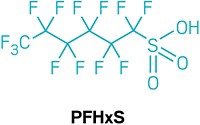Advertisement
Grab your lab coat. Let's get started
Welcome!
Welcome!
Create an account below to get 6 C&EN articles per month, receive newsletters and more - all free.
It seems this is your first time logging in online. Please enter the following information to continue.
As an ACS member you automatically get access to this site. All we need is few more details to create your reading experience.
Not you? Sign in with a different account.
Not you? Sign in with a different account.
ERROR 1
ERROR 1
ERROR 2
ERROR 2
ERROR 2
ERROR 2
ERROR 2
Password and Confirm password must match.
If you have an ACS member number, please enter it here so we can link this account to your membership. (optional)
ERROR 2
ACS values your privacy. By submitting your information, you are gaining access to C&EN and subscribing to our weekly newsletter. We use the information you provide to make your reading experience better, and we will never sell your data to third party members.
Policy
Chemicals Added To Rotterdam Treaty
by Cheryl Hogue
May 20, 2013
| A version of this story appeared in
Volume 91, Issue 20
Two flame retardants, a family of eight-carbon perfluorinated substances, and an organophosphate pesticide are new additions to a treaty that requires exchange of information between exporting and importing countries. At a United Nations meeting that ended on May 10, governments agreed to add these compounds to the Rotterdam Convention on the Prior Informed Consent Procedure for Certain Hazardous Chemicals & Pesticides in International Trade. The move means that any country that exports these compounds must inform importing countries that the substances are banned or severely restricted elsewhere in the world. Affected chemicals include pentabromodiphenyl ether and octabromodiphenyl ether, which are flame retardants that published laboratory studies link to neurobehavioral effects and disruption of thyroid hormones. Also added to the treaty are perfluorooctanesulfonic acid (PFOS) and its cousins perfluorooctane sulfones, perfluorooctane sulfonamides, and perfluorooctane sulfonyls. PFOS is widespread in the environment and is a degradation product of perfluorooctane sulfonamide derivatives. Azinphos-methyl, an insecticide that can cause nerve damage, rounds out the added chemicals.





Join the conversation
Contact the reporter
Submit a Letter to the Editor for publication
Engage with us on Twitter